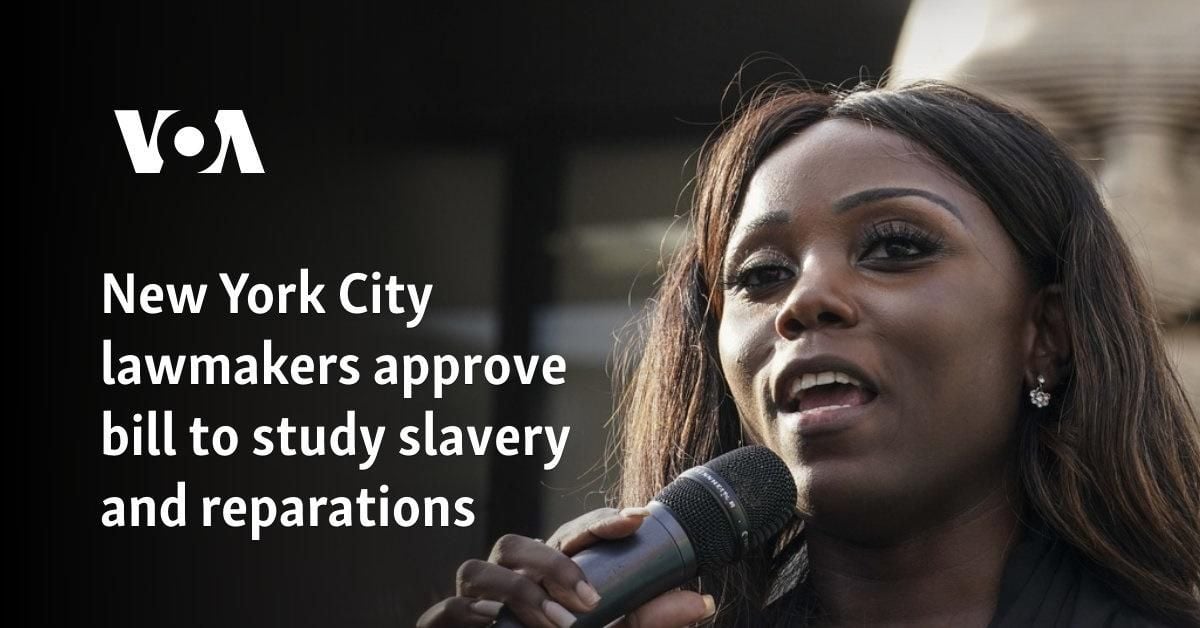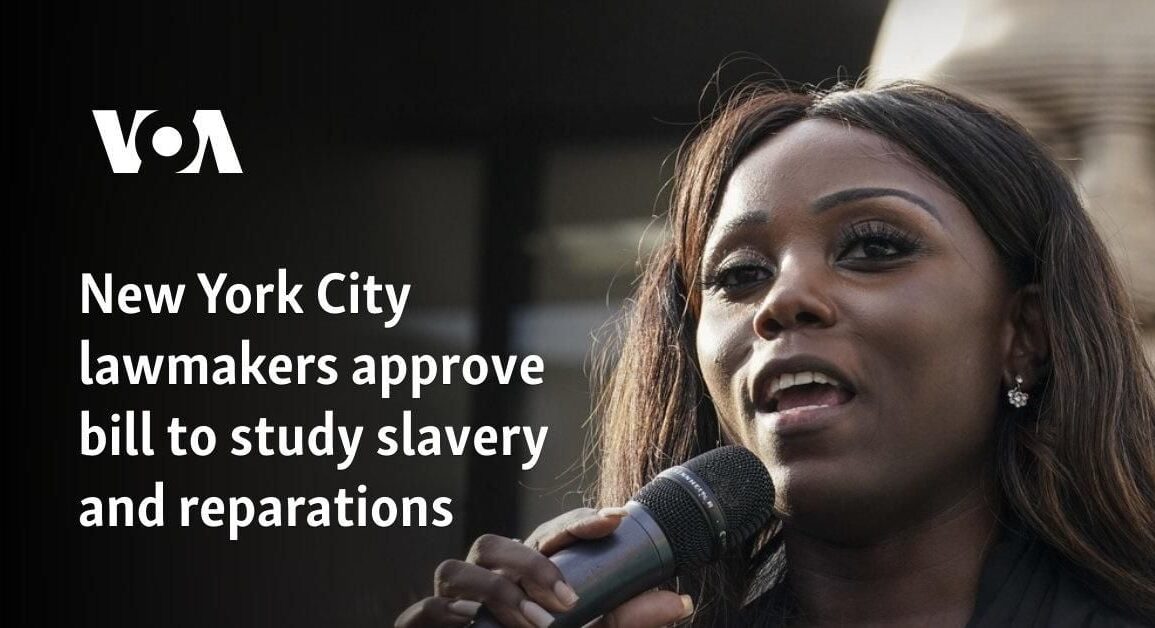
New York City is taking decisive steps to reckon with its historical ties to slavery and the lasting impacts of systemic racism. On Thursday, the New York City Council passed multiple bills focused on studying the legacy of slavery and exploring potential reparations for the descendants of enslaved people. This package of legislation signifies the city’s commitment to addressing injustices rooted deep within its history, demonstrating how far the conversation around reparations has evolved.
The pivotal vote came after months of debate and internal hesitation among city lawmakers. Councilmember Farah Louis, who sponsored one of the leading bills, noted the initial reluctance among legislators to tackle such sensitive and challenging topics. “Even within our own ranks, there were those – particularly among Black and brown legislators – who were reluctant to engage with this sensitive issue, fearing the potential consequences,” she said. Tensions exemplified the broader societal hesitance to confront the darker chapters of American history.
This passing legislation places New York City alongside several municipalities across the nation aiming to rectify historical wrongs. The bill tasking the Commission on Racial Equity with studying the impact of slavery and determining reparative measures will work cohesively with the recently created state commission dedicated to this cause. Governor Kathy Hochul previously signed statewide legislation to initiate the reparations study, laying the groundwork for the city’s actions.
The proposal doesn’t merely focus on monetary compensation but includes creating resources such as medical care and legal services, acknowledging the need for holistic approaches to rectifying historical injustices. “The reparations movement is often misunderstood as merely a call for compensation… it is a commitment to acknowledging and addressing the deep-rooted injustices,” Louis added.
One of the standout measures included demands for enhanced historical awareness, such as the installation of accurate signage identifying the former site of New York City’s first slave market, which operated on Wall Street. An existing ill-placed sign, according to Public Advocate Jumaane Williams, fails to represent the actual location. The original market lasted from 1711 until 1762, connected to the economic heartbeat of Wall Street, allowing New Yorkers to explore their complex history.
Historian Leslie Harris reinforces the importance of these new initiatives, reminding us about the historical significance of slavery in New York, not merely as part of southern states’ narratives. “Slavery was not just relegated to the plantations but was integral to the urban economy and infrastructure of New York City,” she stated. From the first enslaved individuals arriving as early as 1626, they played key roles in building not just another city but the financial systems still prevalent today.
The council’s decision is not only about reparations for past injustices but also aims to engage contemporary discourse around systemic racism and inequality. Councilmember Crystal Hudson emphasized the legislation’s role as part of the larger challenge systemic barriers pose to Black and Indigenous communities: “The legislation is about uprooting how slavery and its legacies operate today,” she said.
Linda Tigani, executive director of the Commission on Racial Equity (CORE), voiced the urgency of this undertaking, stating, “Your call and your ancestors’ call for reparations had not gone unheeded.” The council’s approval means CORE is now tasked with providing periodic reports on its progress and proposing initiatives aimed at addressing the lasting impacts of slavery.
Pledging to engage the wider community, the commission plans to hold public hearings as it compiles its findings leading up to its final report, due by July 2027. This initiative dovetails with the pressing need for transparency and educational outreach among all New Yorkers, aiming to educate citizens on the historical injustices tied to their city.
Supporters of reparations view this move as groundbreaking, connecting it to broader historical contexts and the relentless fight for racial equity. Activists maintain the need for clarity surrounding reparations and the mmorality behind addressing the consequences of slavery. The city has seen momentum with conversations about reparative justice, with nearby Tulsa, Oklahoma also establishing reparations initiatives after the Greenwood Race Massacre. Evanston, Illinois recently became notable for being the first city to distribute reparations funds directly to Black residents and their descendants.
Despite progress, there remains skepticism among some communities. David Thomas, whose family has been directly affected by the historical oversight of enslaved people, expressed his doubts about the materialization of reparative measures. “I’ll believe it when I see it. How do you put a dollar amount on something so sinful, so degrading?” he questioned. This sentiment encapsulates the hesitance many feel, urging the city and its lawmakers to translate their promises of justice to tangible results.
Nevertheless, the historical acknowledgment proposed is seen as necessary groundwork. Advocates stress the repeated message of healing and reconciliation as the city moves forward. “This isn’t just about checks; it’s about making sure we repair the harm done,” Assemblymember Michaelle Solages, who championed the state-facing reparations legislation, emphasized after witnessing the installation of commemorative sites for victims of oppression.
This proactive legislative package encapsulates New York City’s urgent quest to reconcile with its past and to facilitate discussions of equity for marginalized communities today. It stands as both recognition of the struggles of the past and as a hopeful blueprint for the future.
Give Feedback. How was this article?
You can help us improve by leaving feedback specific to
this content.
How would you rate the quality of this article?
Terrible

Which of the following feelings did this article evoke in
you?
Multiple Selection
How easy was it for you to find the information you were
looking for in this article?
Super Hard

Artificial intelligence is increasingly used in content
creation. What percentage of this article do you estimate was generated by AI?
How can we improve this article (or our articles in
general)?
Send Feedback
Thanks for the feedback
Thank you for supporting us to improve ourselves with your
feedback.





